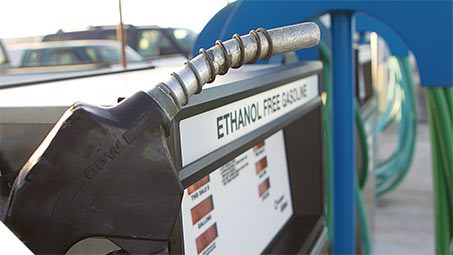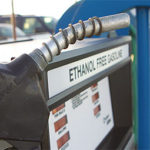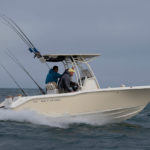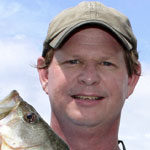
Try to burn a full tank at a time, mechanic says
Chris White of Awendaw looked at his brother-in-law, excited about fishing after seeing trip photos for days, and said, “Just kick back and relax. We’ve got about a 15-minute ride to the fishing hole, and the weather, the tide — everything is just right. We’re going to wear the fish out.”
White idled away from the dock, but when it was time to punch the throttle, his outboard coughed, sputtered and cut off. He cranked it again, swore that it had been running smooth as silk, and repeated the scene. And did it again. Once he’d pieced together enough tries that he had made it out of the no-wake zone, he was able to crank the motor, immediately lower the hammer, and speed away, but when he slowed to an idle once reaching his fishing spot, his motor shut off again.
White and his brother-in-law had success fishing, but White was visibly frustrated and confused about why his outboard wasn’t running properly. He fought the problem for the rest of the day, every time he tried to idle or shift from idle to a moderate speed.
He was experiencing a problem that many boat-owners do at some point, and it seems to happen a lot this time of year. Fishing season is in full swing, and whether anglers had their boats serviced at the beginning of spring or not, many find their outboards are not running so smoothly in the middle of summer. The problem, in most cases, is simple to fix, and it’s just as simple to prevent.
Manning Turner of Manning’s Boat Service in Pawley’s Island (843-485-7080) said the biggest problems he sees this time of year have to do with fuel, and he sees a few different things that cause idling problems and acceleration issues with his clients’ outboards.
You’ll hear plenty of debate among boaters as to whether regular gas or ethanol-free gas is better for outboards. In most cases, one gallon of regular gas contains about 10-percent ethanol, according to the Environmental Protection Agency. Many anglers believe this causes more problems than ethanol-free gas, which is difficult to find and more expensive. Turner said he doesn’t see a problem with either, as long as it’s not mixed with the other.
“Ethanol gas is really fine. I don’t think it causes any issues on its own, but when someone has a half a tank of regular gas and they mix it with non-ethanol gas, it is going to cause a problem. They don’t mix well together, and it doesn’t matter whether you’re running a four-stroke or a two-stroke engine. If you mix these two types of gas, you’re asking for trouble,” he said.
Even when boaters stick to the same type of gas, issues can arise if they don’t allow their fuel tanks to cycle through a full tank — or at least 3/4 of a tank — before topping off with more gas.
“You don’t want to have old gas running through your motor, and if you’re topping off your tank after every fishing trip, you’re not cycling through your gasoline. There is no way to use gas in the order that you bought it. Some of what’s getting burned on the next trip is the new gas, and the old gas is diluting the new gas. You may not see a problem right away, but over time, it’s going to cause issues,” he said.
Many anglers have this problem year after year, and Manning said one of the reasons is because it usually takes a while for the problem to become evident.
“You can run several trips, burning half a tank and topping off after ever trip, and you won’t notice a problem on those trips. Then all of a sudden, the motor won’t idle properly, or you have problems when accelerating,” he said.
Most of the damage is done to fuel lines and carburetors, where gunk stacks up on more gunk, not allowing the fuel to be properly distributed. Fuel additives like Sta-bil can help, and Mystik’s All-in-One solution is an engine oil pre-mixed with fuel stabilizer. Ethanol treatment and engine cleaner can help, but Manning said as long as you cycle through your gas, don’t mix fuel types, and service your outboard annually, you probably won’t have these issues.






Be the first to comment